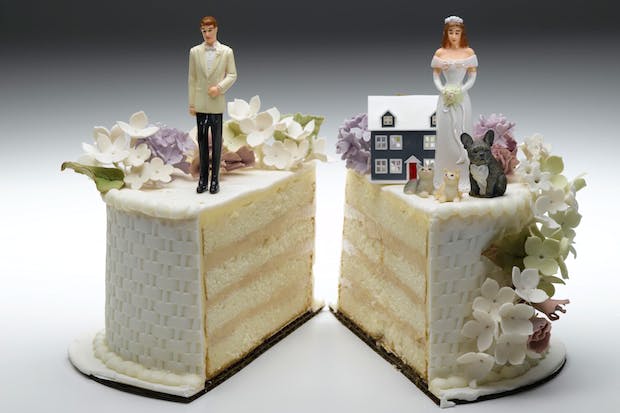The average cost of attending a wedding is £800 per couple, according to a press release from Nationwide which landed in my inbox earlier this week. The building society completely ignored the fact that single people attend weddings too.
Nationwide says wedding attendance costs can really mount up ‘especially if you’re going as a couple’. Er, no, you idiots, no no no. Simple calculations confirm going to a wedding solo costs loads more than going as a couple. Unless you can find a pal to split costs with, you’ll be stumping up for petrol, accommodation and a present all on your ownsome and out of a single salary.
To be fair Nationwide isn’t the only organisation which ignores or penalises single people: they’re all at it despite the fact about a third of UK households consist of just one person.
Just the other week I saw a headline that read: ‘Families to pay more for energy’. Brilliant, I thought. That won’t affect me because I am not part of a ‘family’ (well obviously I have parents, siblings and cousins and stuff, but that’s not what they mean). Further clicking revealed that energy bills were going up for everyone, not just families. ‘Households’ is the word you’re looking for, sub-editors.
Contrary to popular belief, being romantically unattached and childfree isn’t cheap. Arguably, single people contribute more to society than everyone else because they receive less back in terms of tax breaks and two-for-one perks.
Take the marriage tax break for example: it’s a tax on singledom. Married couples can transfer a proportion of their personal allowance (the amount you can earn tax-free each tax year) between them, saving up to £662 a year. How nice for them.
Bachelors, spinsters (I hate that word), serial shaggers and the plain picky are penalised financially in numerous other ways too, some more obvious than others.
Obviously it costs more to live alone rather than splitting the cost of a mortgage or rent and bills with a partner. Council tax is a particular bugbear of mine. Council tax bills are supposedly calculated based on two adults living at an address, yet the single person discount for living alone is a paltry 25 per cent.
According to insurers, I’d be a better driver tomorrow if I got hitched today. Numerous pieces of research show singles pay more for car insurance than their married counterparts – you can put it to the test by comparing quotes with identical details except marital status.
Apparently the footloose and fancy free are deemed less ‘stable’ by insurers than those coupled up. I’m not convinced by this. I can’t help thinking that spouses who suddenly realise their marriage was one enormous mistake are the ones driving round in a state of accelerator-ready rage, not chilled-out singles.
Still, single people can always take the train, right? Well, yes if you want to pay more than your smug married friends. The Two Together railcard (£30 a year) offers a third off train fares if you travel with the other person named on the card. In theory, you can buy a Two Together card with your best friend, it doesn’t necessarily have to be your partner, but that’s only really handy if you’re aged eight and joined at the hip to your BFF.
OK, so trains are out. How about catching a flight? Don’t be fooled into thinking you can take advantage of Easyjet’s latest deals if you’re jetting off alone. The small print states: ‘prices shown are per person based on two people on the same booking’. So there’s a tax on flying solo too.
As for taking a package holiday alone, well you may as well just forget it. The dreaded ‘single supplement’ is the bane of single travellers’ lives. Hotels and travel agents add on this charge when one person occupies a room that could accommodate two.
The travel industry tries to justify the single tax by questioning why a hotel should let a room at a reduced rate to a single person when they could get more cash off a couple?
It may make sense in some cases but the last time I (and several of my friends) coughed up for the single supplement, the hotel was half empty. We weren’t preventing couples from booking rooms – it was us or no one.
It’s bonkers when you think about it, isn’t it? Organisations aren’t allowed to discriminate on gender, ethnicity or sexual orientation but romantic status remains fair game. I’m attached, if you were thinking of asking, but I still think it’s unfair.
Emma Lunn is a freelance personal finance journalist






Comments